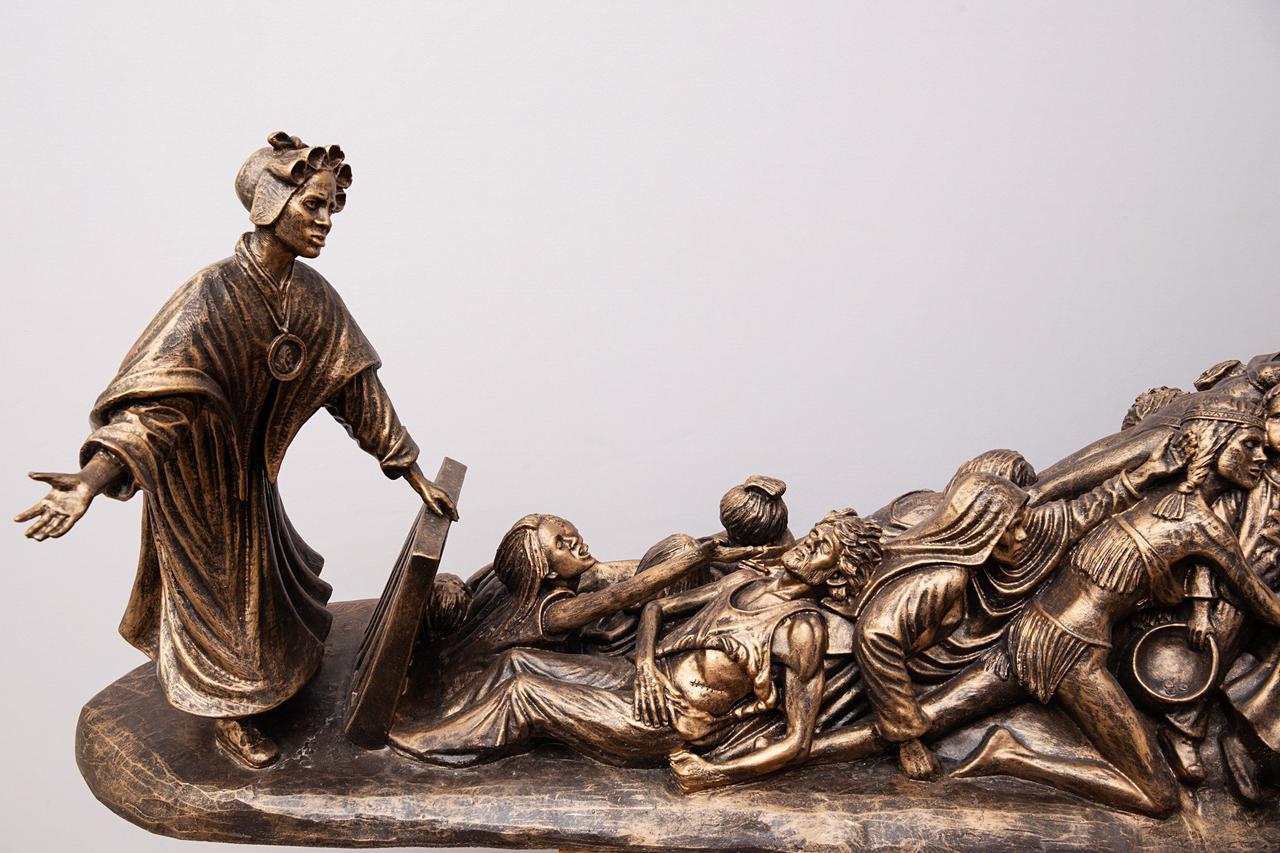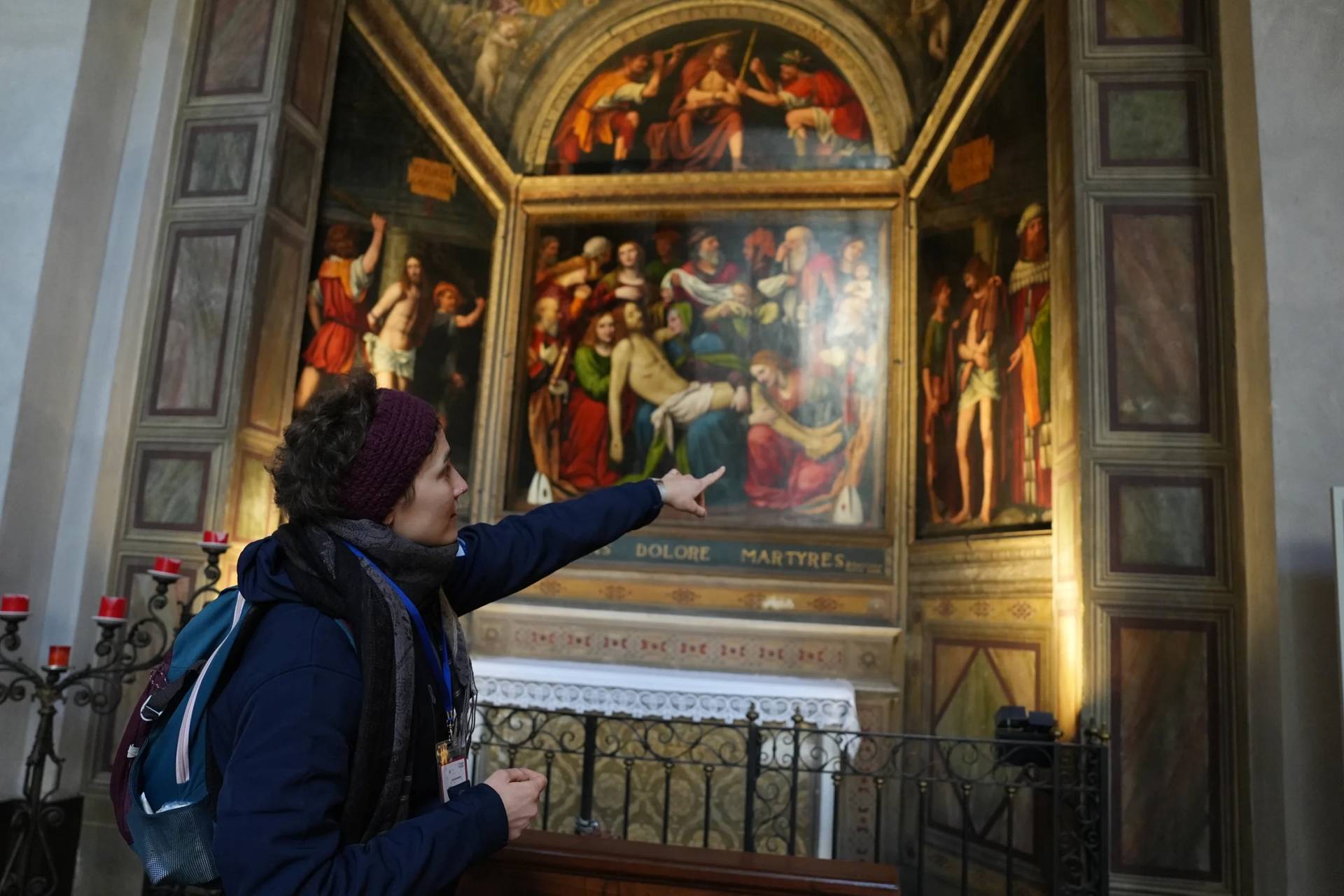YAOUNDÉ, Cameroon – Faith organizations and leaders around the globe have set faith-centered priorities to eradicate the scourge of human trafficking by 2030.
The United Nations defines human trafficking as “the recruitment, transportation, transfer, harboring or receipt of people through force, fraud or deception, with the aim of exploiting them for profit.”
The U.S. Department of States adds that when a person younger than 18 is used to perform a commercial sex act, it is a crime regardless of whether there is any force, fraud, or coercion involved.
Meeting in Cape Town, South Africa, under the banner of the G20 Interfaith Forum, the faith leaders resolved to strengthen prevention through targeted education and community awareness; ensure survivor-centered reintegration programs that guarantee dignity and full inclusion; and crucially, call for the G20 and national governments to formally integrate faith actors into policy frameworks.
Sister Diana Kanyere, the National Coordinator of Talitha Kum Zimbabwe, moderated the session on human trafficking.
She told Crux that human trafficking is “one of the fastest growing criminal industries, exploiting vulnerabilities and undermining human dignity on a global scale,” adding it affects an estimated 50 million people worldwide, generating close to $150 billion annually in illicit profits.
Talitha Kum is the International Network of Consecrated Life Against Human Trafficking established in 2009.
According to the 2023 Global Slavery Index, an estimated 6.04 million people are living in modern slavery in sub-Saharan Africa, accounting for 12 percent of the global enslaved population. When considering the entire continent, this number rises to approximately 7 million individuals, representing 14 percent of the worldwide total enslaved population.
Kanyere noted that the scourge affects predominantly poverty-affected regions of the world.
“While no region is immune, Asia-Pacific, Africa, and parts of Eastern Europe are disproportionately affected due to poverty, conflict, weak governance, and migration pressures,” the religious sister told Crux.
“Wealthier regions, such as North America and Western Europe, are often major destinations for trafficked persons,” she added.
Troubling testimonies
Christopher Neba is from Cameroon’s North West region and still hasn’t overcome the feeling of loss following the abduction and trafficking of his seven-year-old daughter, Beltine Lum.
He recalls that he was taking an afternoon nap while his daughter and other kids were playing outside in the courtyard.
“A neighbor’s child rushed in to tell me that a stranger had taken my daughter away,” he recalls.
“I searched everywhere. I involved the police, but up to this day, I haven’t heard any news about my daughter,” Neba said.
Recent returnees to Cameroon, including girls trafficked to the Middle East, are revealing disturbing stories of modern-day slavery.
Hope Ngeh’s experience is typical. The 27-year-old primary school teacher was recruited in 2021 for a teaching position in Kuwait offering $500 monthly — a significant increase from the $82 she earned at home.
The agent arranged her travel documents and flight. Hope’s ordeal began immediately upon arrival in Kuwait: Her passport was seized, and she was taken to a room crowded with other young women from various African nations, including Cameroon, Ghana, and Ethiopia.
She quickly realized the grim truth: she had been trafficked and was now being offered for sale. Hope was subsequently bought by an Egyptian national.
“Life became a nightmare,” Hope recalls.
For nearly two years, Hope was subjected to grueling forced labor, working up to 22 hours a day.
“There was no sleep. No rest. If I had to sleep, it was on the floor. I ate food that was meant for dogs, and I started calling them my brothers, because there was no one else I could talk to,” she recounted to Crux.
Remarkably, she eventually escaped this captivity.
A fight defined by faith and cultural values
Kanyere said her dedication to combating human trafficking stems from the deep well of her cultural heritage and her Catholic faith.
“Within my tradition, the sacred value of human dignity and the belief that every person is created in God’s image compel us to reject exploitation,” the religious sister told Crux.
“Faith demands solidarity with the oppressed, shaping our response not merely as a social obligation but as a spiritual and moral duty,” she explained.
The session she moderated at the G20 Interfaith Forum highlighted significant gaps “where action is called for.”
These gaps include survivor reintegration, stigma reduction, and community level prevention.
She said religious leaders “are uniquely positioned to challenge harmful norms, provide holistic care, and break cycles of silence in areas where state responses often fall short.”
Kanyere added that faith communities bring a unique perspective to the fight against the scourge.
“Faith communities bring moral authority, grassroots reach, trust within local populations, and deep networks of volunteers and institutions. These assets allow them to raise awareness, support survivors, and mobilize action in ways governments or NGOs sometimes cannot,” she said.
As the deadline looms for UN Sustainable Development Goal Target 8.7 — committed to ending modern slavery, human trafficking, forced labor, and child labor — international human rights group Walk Free reports dwindling hope for success. The organization warns that escalating threats from conflict, climate change, and weak government enforcement are critically undermining progress towards achieving this vital target within the remaining five years.
But Kanyere remains ever hopeful. She notes that progress has been made, explaining that faith inspired coalitions such as Talitha Kum, a global network of religious sisters, demonstrate how sustained collaboration can empower communities and directly rescue and support victims.
“Such initiatives show that faith leadership is central to tangible progress,” she told Crux.














